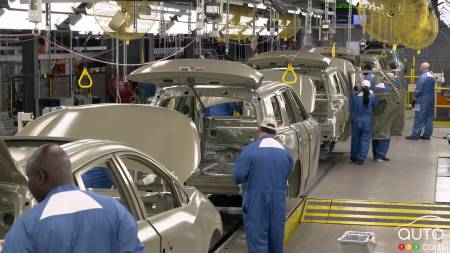Nissan Motor Co. this week announced a major restructuring of its U.S. operations due to declining sales. The company will reduce production of its flagship models and offer voluntary redundancy to more than 1,500 employees in order to reduce its workforce in the country.
Closure of one assembly line shift
Starting in April, Nissan will eliminate the second shift on Rogue and Altima assembly lines in Smyrna, Tennessee and in Canton, Mississippi. Production at the Decherd, Tennessee engine plant will also be reduced, but without any job cuts.
According to AutoForecast Solutions, this restructuring could result in a drop in production of around 63,000 vehicles in 2025, or 12 percent of Nissan's total U.S. production.

Falling Rogue and Altima sales
The Rogue and Altima accounted for 42 percent of the 865,938 vehicles sold by Nissan in the U.S. in 2023. However, Rogue sales fell by 9.5 percent, while Altima sales dropped by 11 percent. A delay in the launch of the 2024 Rogue and the absence of a hybrid version further dampened demand.
In Canada, Nissan sales followed a similar trend.
Impact on suppliers and the automotive industry
Nissan's suppliers will quickly feel this drop in production. Some depend heavily on those two models to maintain their profitability. Nissan has said it will renegotiate its supplier contracts on a case-by-case basis, depending on production volumes.

Downsizing: voluntary departures without forced redundancies
To limit redundancies, Nissan is offering severance packages to long-serving employees. The company says no forced job cuts are planned, and that workers who don’t want to leave will be reassigned to other functions.
Future production: Nissan bets on electric
Production cutbacks aside, Nissan is maintaining its plans to manufacture electric vehicles. The Canton plant should start assembling electric crossovers by 2028, followed by electric sedans. In parallel, a plug-in hybrid Rogue will be produced at Smyrna in 2027, marking a return to two-shift operation at that plant.
Faced with a changing automotive market, Nissan is adjusting its production and workforce while preparing for the transition to electrification. Those changes will impact not only employees, but also the entire supply chain. It remains to be seen how the market will react to the strategy.





